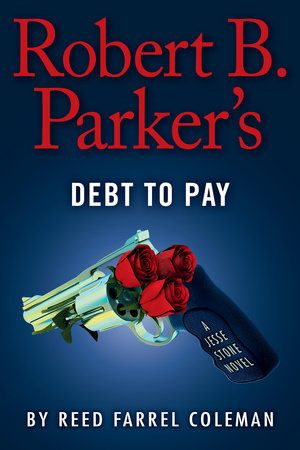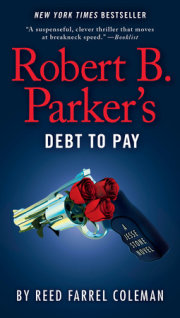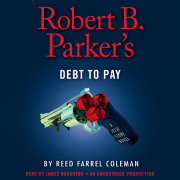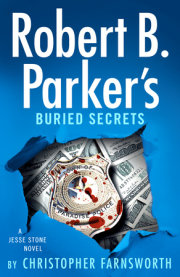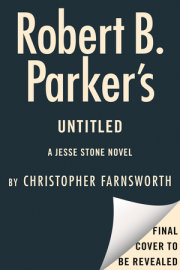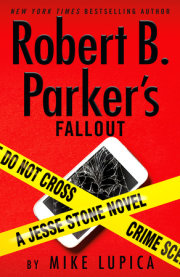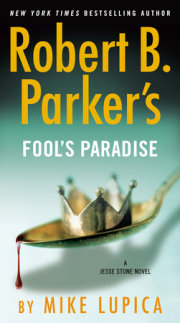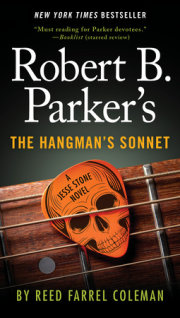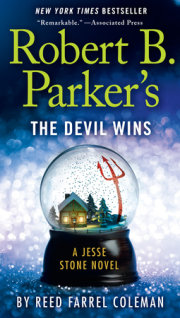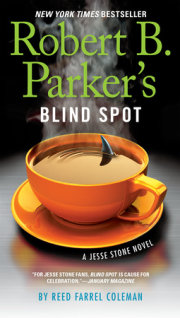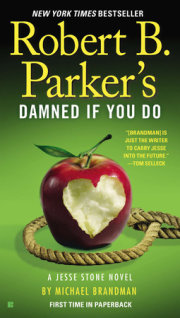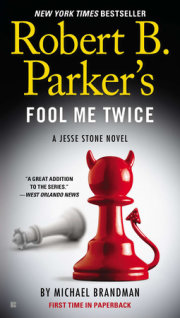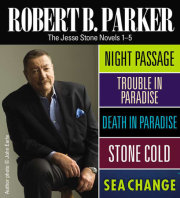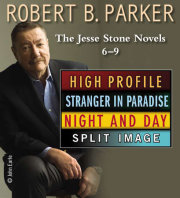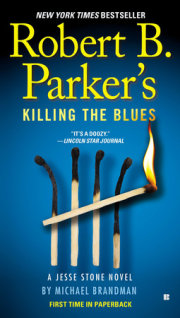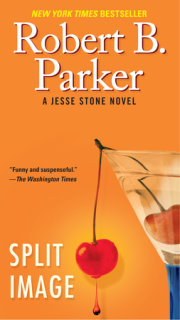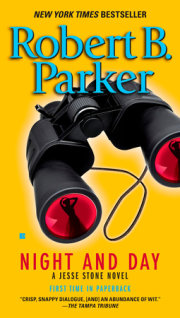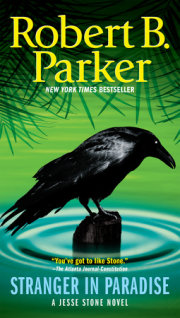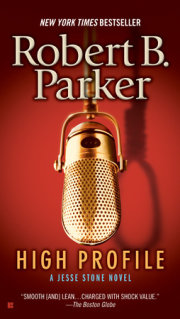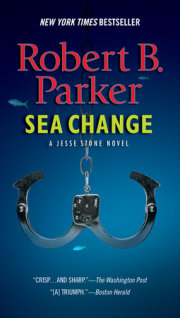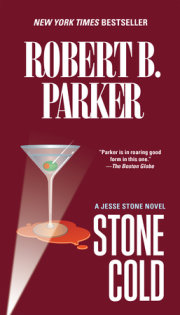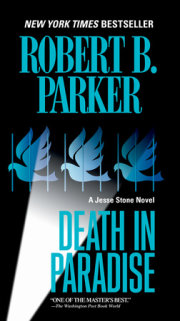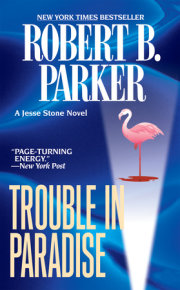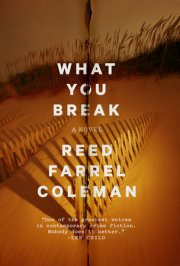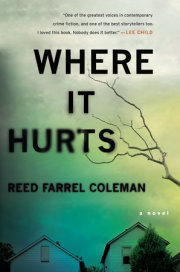ONE
He didn't like exposing himself to video cameras when there were no crowds affording him his usual anonymity. His talent wasn't just for killing, but for blending in as well. He was like a khaki-colored pixel in a camouflage pattern. Stare at the pattern long enough and the individual pixels disappear. Today he meant to put the world on notice that he was back and the time had come to repay his creditors. He very much wanted to do both, and had waited more than a year for this opportunity. Still, he couldn't afford carelessness. He was seldom careless. He had taken precautions and the soaking rain was doing its part to cooperate. The gray was so heavy in the air that it seemed like its own weather condition separate from the rain and mist.
He parked the stolen Yaris out behind the building, because not even he could haul his intended cargo out the front door and hope to get very far. He went through his mental checklist, patted his pockets, and exited the car. He walked through the alleyway, turned right, and then right again. There were people on the street, many people, their heads down against the weather, too busy fussing with umbrellas to take notice of the little bearded man with the long gray hair and porkpie hat shuffling by them. Nor did they notice his large belly beneath the ill-fitting green mackintosh he'd bought at a church thrift shop outside Paradise. While he was unrecognizable, he made certain not to look directly into the security cameras as he entered the building.
He knocked at the office door, turned the handle, and let himself in. The young man sitting at the reception desk was really quite beautiful to look at. Dressed in an impeccably tailored designer suit of summer-weight wool, he had fine features, long lashes, eyes that matched the deep blue of his suit fabric, and perfectly coiffed dark blond hair. The light stubble on his face was shaved and shaped in such a way as to enhance the power of his angular jawline. He had an ingratiating smile full of straight white teeth. He stood up from behind his desk outside Gino Fish's office to greet the odd-looking little man standing before him, water dripping off the hem of his coat and the brim of his silly hat. Takes all sorts, he thought, and Gino did do business with a lot of unsavory types. The little man took two steps toward the receptionist.
"How may I help-"
The beautiful young man never finished his sentence or took another breath. He had been so focused on the odd man's bad gray wig and fake beard that he hadn't seen the blade in the man's small hand. He'd felt it, though, if only very briefly, as the assassin thrust the knife forward. Using his legs like a boxer to supply the necessary power, the little man plunged the razor-sharp blade through the receptionist's tailored suit jacket, his shirt, his perfectly tanned skin, and his breastbone. The blade cut a fatal gash in the young man's heart. With incredible speed and surprising dexterity, the killer removed the blade and thrust it deeply into the receptionist's throat, making sure the mortally wounded man could not cry out. Careful to avoid getting bloody, the killer caught the body by the sleeve and eased it gently to the floor as if placing a sleeping baby in its cradle. There was blood, but not nearly as much as there would have been had the killer reversed the order of the wounds.
He knelt down beside the results of his handiwork, wiping the blade off on the wool suit before replacing the assault knife back in his pocket. He lingered, admiring the fine features and lovely blue eyes of his victim. He stroked the body's still warm cheeks with the back of his hand. Ran his fingers over his dark blond hair. Shook his head in regret. Just because he lived to destroy didn't mean he had no appreciation of beauty. On the contrary, he had an abiding appreciation for it, though he resented beauty far more deeply. To be human was to possess opposing feelings. In this instance, it wasn't that he so much minded having to kill the man, but that circumstance dictated that he kill him quickly. How much more pleasure could he have derived from the experience had he been able to take his time? He took enormous delight in tearing beautiful things apart by the inch. Quelle dommage, he thought. What a pity.
He stood; removed the beard, wig, and hat; and placed them all in a plastic bag, then tossed the bag in the trash. Law enforcement already had epithelial and hair samples from any number of his crime scenes. They had samples of his blood from the incidents with Stone's deputy and Joe Breen, but it was of no consequence. They had no name, no face, no person to match them to, only a question mark and a despicable nickname. Sometimes he had to remind himself of his given name and to remember where he'd come from. Now was not the time to dwell on the past.
He removed the pillow from under his thrift-shop raincoat and, in a cruelly ironic gesture, placed the pillow beneath the murdered receptionist's head. Amused, he checked his watch and smiled. He was very good. Less than a minute had elapsed from the time he'd come into the office until he'd placed the pillow beneath the dead man's head. He retrieved his .22, stepped up to Gino Fish's office door, and knocked.
"Come on in, Drew," Gino said, his voice almost a purr.
The killer stepped into the office, closing the door behind him. The aging mobster's head was buried in the Friday edition of The Globe.
"We should be okay for our weekend on the Cape," Fish said, still not looking up. "Not supposed to rain again until late Sunday."
"Sorry to disappoint you, Mr. Fish," the killer said, gun hand raised. "I'm afraid Drew won't be accompanying you to the Cape this weekend, but don't be sad. I have other more exciting plans for you for the weekend."
Although Gino Fish had never seen or spoken directly to the man standing before him, he knew immediately who he was.
"Mr. Peepers. Fuck!"
The killer was tempted to put a bullet in a very painful but nonlethal area of Fish's body, but he fought the impulse to do so.
"If you refer to me by that name again, Mr. Fish, I promise you your death will take even longer and be far more painful than you could possibly imagine."
The old mobster tried to remain calm, though his left hand was trembling. "Then what should I call you?"
He thought about it, smiled a smug, self-congratulatory smile. "Call me Mr. Mantis."
Gino didn't argue. "All right, Mr. Mantis. You killed the boy, huh? Did you have to do that?"
Mr. Mantis nodded. "A shame, I agree. Nice-looking man. My compliments on your taste."
"This about that thing with Stone that went south?"
"What else? I warned the people who contacted me for you that if anything went wrong, you would pay the price for interfering in my affairs."
"I don't suppose there's any bargaining room here?" Fish bowed his head at the gun in the killer's hand. "I can offer you a big sum of cash to put that thing down and walk out of here. I'll see to Drew."
Mr. Mantis shook his head, smiling all the while.
"And I don't figure telling you that Vinnie Morris won't let this stand will intimidate you?"
Mr. Mantis continued shaking his head and smiling.
"Yeah, I didn't think so."
The killer motioned with his .22 for Gino Fish to stand.
"Slowly, Mr. Fish. You and I are going to take a walk down the hall and out the back door of the building."
Gino Fish didn't move. He was well aware of Mr. Mantis's reputation for sadism. Fish had heard stories about how the man he knew as Mr. Peepers delighted in torturing his victims. He understood that if he left the office with this man, he would suffer a long and horrible death and that his body would probably never be found. For some reason that last part bothered him. Gino Fish was well past his prime, having grown too soft, too comfortable, and too careless, but he was no old fool. He hadn't made it to the top echelons of the Boston mob and stayed there as long as he had by blind luck. He always had a backup plan. Always.
Mr. Mantis motioned again for Gino to stand, only this time Fish did as instructed. But as he rose, he reached into the open top drawer of his desk, grabbing the old Colt snubnose .38 he'd kept there for many years, just in case. Just in case was now, though he knew better than to try to engage his captor in a shootout. Instead, in one swift motion, he pressed the revolver into the flesh beneath his chin and, without hesitation, pulled the trigger. He hung upright for what seemed a very long second, then collapsed into a lifeless pile of well-dressed skin and bones.
Mr. Mantis was impressed by the speed with which Fish had acted, but was furious at being robbed of his vengeance. He was also unnerved. Twice recently, he had let victims slip through his fingers, but he didn't have the luxury of time to dwell on it. He knew exactly what to do and how to do it. He removed the assault knife from his coat pocket and moved toward the lifeless body of Gino Fish. Afterward, he retrieved the plastic bag from the trash.
Less than five minutes later, the odd-looking little man with the long gray hair, ragged beard, and porkpie hat walked out the front door of the building and back into the rain.
TWO
After last year's spasm of blood, life in Paradise, Mass, had settled back into its predictable, small-town rhythms: steady as the tides, no waves cresting over the seawalls. There hadn't been a single act of violence for months, the last one being a bar fight among four drunk musicians at the Gray Gull. Oh, there had been some snowfall, but nothing record-breaking, not even a hint of a nor'easter. The spring had passed as if following the script of old rhymes and adages. March had started out blustery and cold and ended on a week of sunny sixty-degree days. It had rained every two or three days in April, and by mid-May the gardens in town were so lush and colorful with early-spring blooms the place looked like . . . well, a paradise. What passed for a crime wave in Paradise these days was a spate of car vandalism. Somebody had lately taken to shooting out the rear tires of cars parked all over town.
"Anything?" Jesse asked Molly, coming through the station house door on Saturday morning.
"Nothing worth mentioning."
"Mention it anyway."
"No, really, Jesse, there's-"
"Crane, can't you ever make it easy?"
"Where's the fun in that?"
"Fun for who, exactly?"
"Whom," Molly corrected.
Jesse shook his head and laughed. "Are you sure it's 'whom'?"
"I'm not, but it's fun to think you're wrong. Did Diana come down from Boston last night in that rain?"
"Uh-huh. But don't change subjects. What's not worth mentioning?"
"Some water got into our basement and we had to turn on the pump."
"For crissakes, Molly, is that-"
"I told you it wasn't worth mentioning, didn't I?"
Jesse raised his hands above his head. "I surrender."
Molly frowned. "No fun in that, either."
"No new flat tires?"
"No."
Jesse turned and went into his office. He picked up his old baseball glove off the desk even before sitting down. He removed the hardball from the pocket of the glove where it resided, slid the glove over his left hand, and marveled that the glove was still in one piece after all this time. The glove had been his when he was a minor-league shortstop for the Dodgers, and he didn't like thinking about how many years ago that was. Nor did he like thinking about why it was sitting on his desk in Paradise instead of in a display case at Cooperstown. For the moment he wasn't worrying about his absence from the Hall of Fame, but rather about the big softball game tomorrow night against the fire department team.
He had other things on his mind, too. One, a fancy envelope inside the top drawer of his desk, and the recent rash of vandalism. For the moment, he was focused on the latter. Although Mayor Walker and her merry band of selectmen were all over him to do something about it, it was Jesse's experience that the perp was some stupid kid or a cranky old man with a grudge against the town or against Goodyear. He knew that this sort of thing would end soon enough, that the guy doing it would get bored or get sloppy and be caught. Of course there was always potential for things to turn bad. No good ever came of bullets in a populated area. So as Jesse pounded the ball into his glove-it helped him concentrate-he considered ways of catching the shooter in the act.
He heard the phone ring and Molly answer it. A few seconds later, she was sticking her head through the doorway.
"It's Robbie Wilson. You want me to tell him you're not here?"
"No," he said, putting his glove and ball back down on his desk. "I'll take it."
Jesse generally didn't have much use for Wilson, the chief of the Paradise Fire Department, but he was happy for the distraction.
"Morning, Robbie."
"Morning, Chief Stone."
"So?"
"Fifty bucks on tomorrow's game?"
"Gambling's illegal, Robbie."
"Dinner, then?"
"Field might be too sloppy to play on," Jesse said.
"Don't you worry about that. My guys are over there now taking care of it. So, are we on? Dinner to the winner?"
"How can I turn down an offer from a man who can rhyme dinner and winner? We're on."
Jesse put down the phone and stared at the top drawer of his desk.
THREE
He sat very low in the front seat of the Yaris, not because he was worried he would be recognized, but because caution and invisibility were words he lived by. The stolen car . . . no problem. As was his style, he had removed the nondescript subcompact late at night, from the garage of an elderly person away on a long cruise. He laughed his gloating, superior laugh, thinking about the stupidity of the masses. At how key codes made them feel safe and secure. How typical and how foolish. All he ever needed to do was find his mark, sit on her house for a few days before her trip, and use a long lens to watch her punch in the garage code. He always chose elderly widows because they lived alone, put very low mileage on their cars, and kept their cars well maintained. If he didn't possess such a cautious nature, he believed he could simply trick most people into volunteering their key codes. Morons!
Copyright © 2016 by Reed Farrel Coleman. All rights reserved. No part of this excerpt may be reproduced or reprinted without permission in writing from the publisher.

